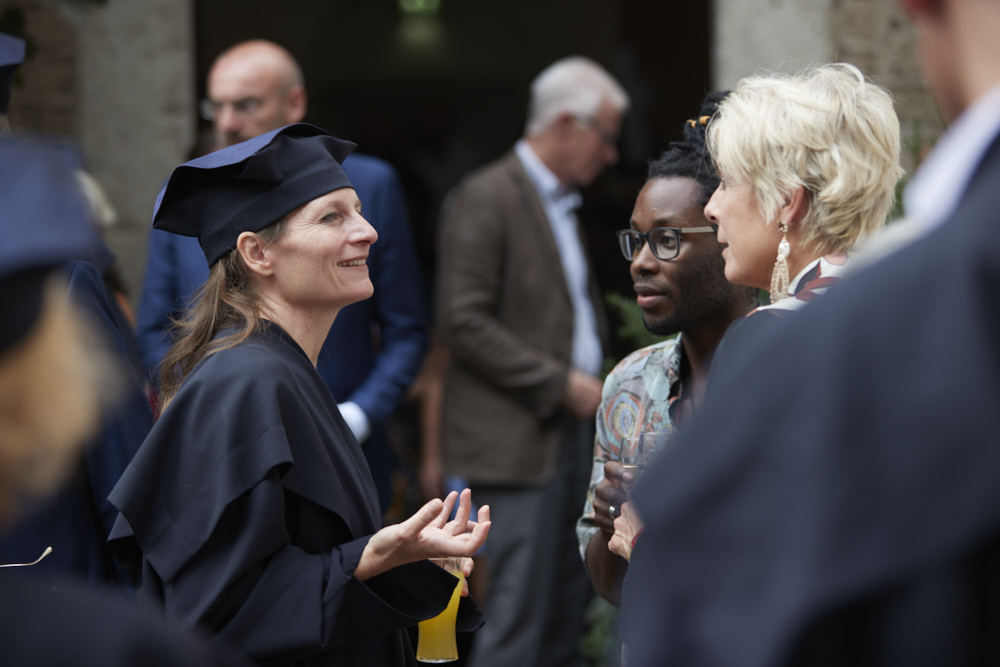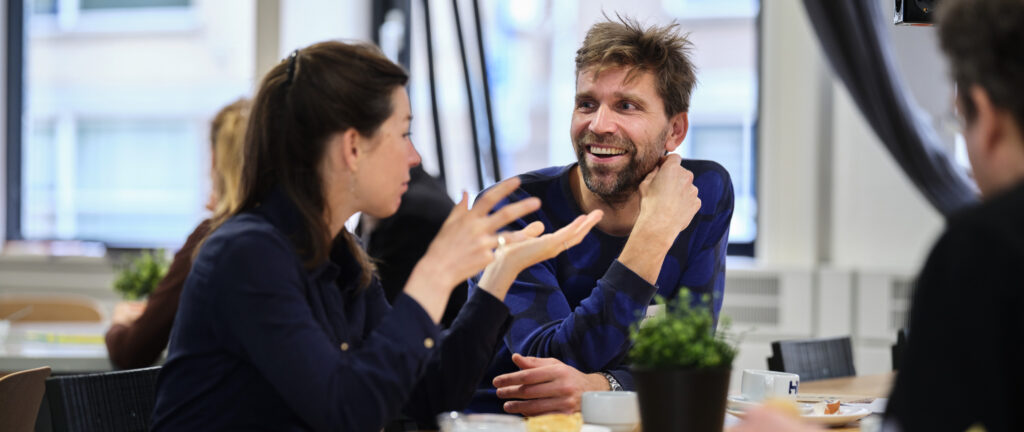About our research

Our researchers are driven by current social issues. They interact directly with society and are focused on making a meaningful contribution to a just and caring world. The central question that connects our research is: How can we optimise opportunities for people to lead dignified and meaningful lives in a just and caring society?
Our research is distinguished by the inspiration we draw from humanism. This is reflected in our methodology in various ways:
Philosophical and ideological reflection
We continuously explore what humanism means and how it relates to current cultural and social developments.
Transdisciplinarity and collaboration
Our researchers combine insights from various scientific methods and disciplines, particularly those of social sciences and humanities, such as philosophy and history. We use both qualitative and quantitative methods and work closely with stakeholders from the field, such as spiritual caregivers, doctors, policymakers, patients, and clients, from the outset.
Normative and philosophical interpretation
We explicitly state which normative and philosophical values play a role in social issues – and are clear about our own research position. We interpret normativity broadly: it encompasses ethics, morality and values, as well as existential questions, meaning and spirituality.
Practical relevance
Although fundamental research has a place at the UvH, most of our research is practically oriented. We want to contribute to concrete improvements that help people lead meaningful lives in a just and caring society.
Themes
The research programme is structured around eight main themes. There is considerable overlap between the themes, so it is quite possible for a research project to be related to multiple themes.
Organisation
Researchers and lecturers at the University of Humanistic Studies are organised into seven departments. Each department has its own focus and expertise. Researchers from different departments collaborate in research and teaching. Prof. Carlo Leget is the research director.
Quality and scientific integrity
Both our research and the training of PhD candidates are assessed by an international review committee in accordance with the Strategy Evaluation Protocol (SEP). You can view the review report.
The university endorses the Dutch Code of Conduct for Scientific Integrity and has a complaints procedure, a confidential advisor and a scientific integrity committee. We also assess whether the rights, safety and well-being of research participants are properly safeguarded and we handle research data with care. Read more about scientific integrity.
Digital Competence Centre
The Digital Competence Centre (DCC) at the UvH is available to researchers with questions about research data management, fundraising and ICT for research


